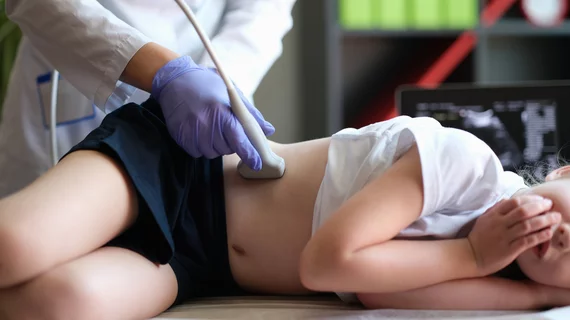Nonclinical staff shortage hampers scheduling of pediatric ultrasounds in urban areas
Scheduling a sonogram of the bladder for a child is much easier in rural areas than urban ones, according to a study published in the Journal of Surgical Research. [1]
The analysis was conducted by a team from Seattle Children’s Hospital, and the findings show that patients who attempt to schedule an ultrasound, specifically of the bladder or kidneys, were three times more likely to find an appointment within a week if doing so in rural geographies. However, the median wait time for both rural and urban appointments remained similar.
For the study, lead author Taylor Washington and colleagues, all from Seattle Children’s, posed as parents attempting to schedule appointments for their children in need of renal-bladder ultrasounds. In total, they contacted 48 rural and 39 urban hospitals in the state of Washington, measuring intervals between the day of contact and the first available appointment.
Of the 48 rural hospitals, the researchers were able to contact 42 (87.5%), and of the 39 urban institutions, they were only able to speak to 20 (51.3%). All attempts were made over the phone, and not all of the hospitals contacted had available appointments. If a slot was open, the median wait time was six days to get an appointment in urban hospitals and seven for rural ones.
“While access to pediatric renal sonograms was similar within a week at rural and urban institutions once telephone contact was made, it was significantly more difficult to schedule appointments at urban institutions,” the study authors wrote.
A renal-bladder ultrasound is used to evaluate serious conditions that may necessitate medical or surgical treatment. Access is important, and the study authors raised concerns that the supply chain and delayed care disruptions from the COVID-19 pandemic may be in part to blame for the inconsistent scheduling.
However, the authors also suggested their findings highlight the need to delve deeper into the effects of staffing challenges — specifically, the shortage of nonclinical staff, who also play an important role in care delivery.
“Successfully scheduling a radiology test by phone requires a scheduler who is able to answer a call from a potential patient and an available appointment for the desired examination,” the authors noted. “Insufficient staffing, inability of schedulers to answer phones promptly, and scheduling challenges, then, would be targeted areas to maximize successful scheduling.”

